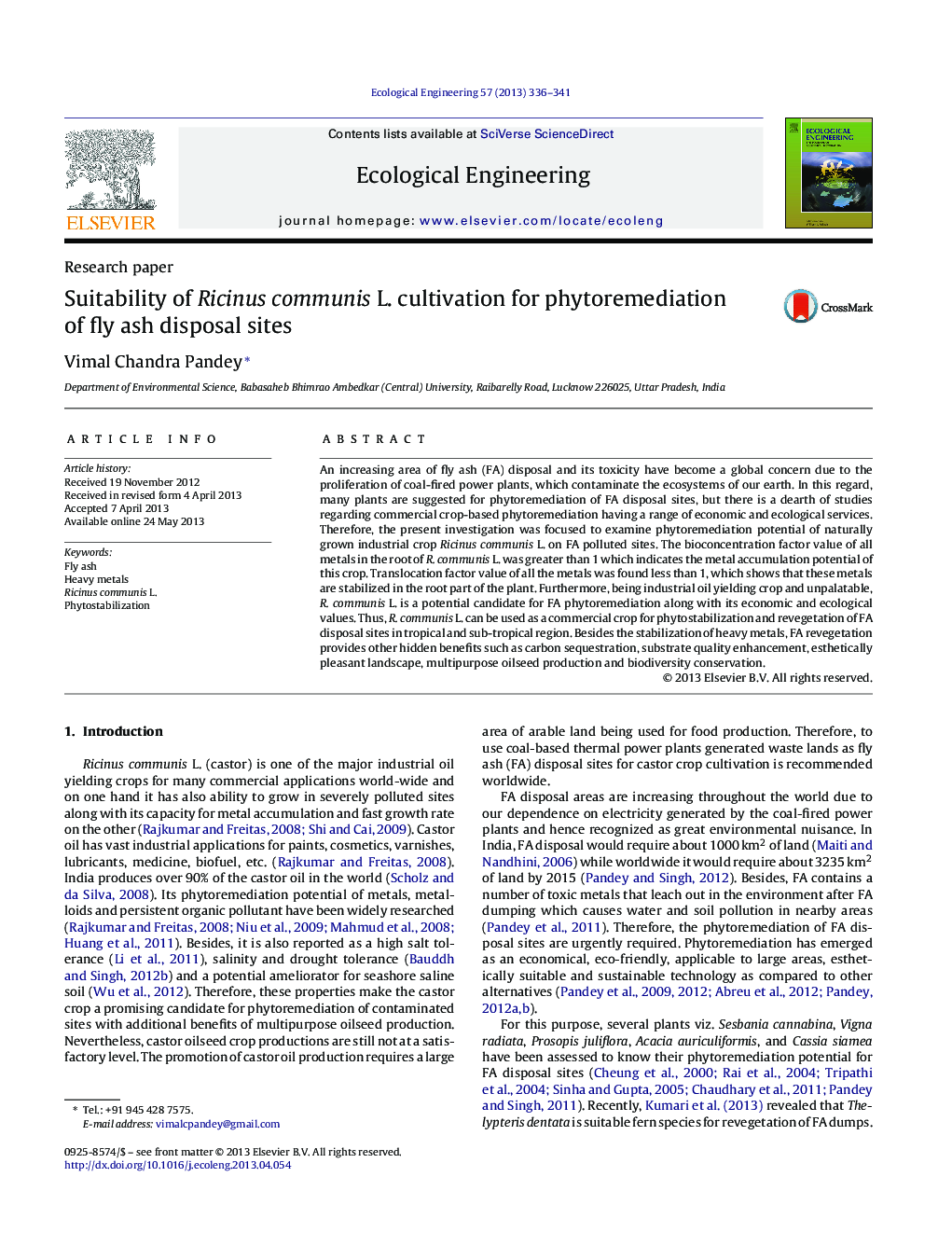| کد مقاله | کد نشریه | سال انتشار | مقاله انگلیسی | نسخه تمام متن |
|---|---|---|---|---|
| 6302635 | 1618041 | 2013 | 6 صفحه PDF | دانلود رایگان |

- Ricinus communis L. (castor) is an industrial oil crop in tropical and sub-tropical areas.
- Castor shows phytostabilization potential in fly ash (FA) polluted sites.
- Being unpalatable nature, it limits metal toxicity for domestic and wild animals.
- It has wide possibility for FA phytoremediation along with economic value globally.
- Eco-services (carbon sequestration, pleasant landscape, etc.) are hidden benefits.
An increasing area of fly ash (FA) disposal and its toxicity have become a global concern due to the proliferation of coal-fired power plants, which contaminate the ecosystems of our earth. In this regard, many plants are suggested for phytoremediation of FA disposal sites, but there is a dearth of studies regarding commercial crop-based phytoremediation having a range of economic and ecological services. Therefore, the present investigation was focused to examine phytoremediation potential of naturally grown industrial crop Ricinus communis L. on FA polluted sites. The bioconcentration factor value of all metals in the root of R. communis L. was greater than 1 which indicates the metal accumulation potential of this crop. Translocation factor value of all the metals was found less than 1, which shows that these metals are stabilized in the root part of the plant. Furthermore, being industrial oil yielding crop and unpalatable, R. communis L. is a potential candidate for FA phytoremediation along with its economic and ecological values. Thus, R. communis L. can be used as a commercial crop for phytostabilization and revegetation of FA disposal sites in tropical and sub-tropical region. Besides the stabilization of heavy metals, FA revegetation provides other hidden benefits such as carbon sequestration, substrate quality enhancement, esthetically pleasant landscape, multipurpose oilseed production and biodiversity conservation.
Journal: Ecological Engineering - Volume 57, August 2013, Pages 336-341